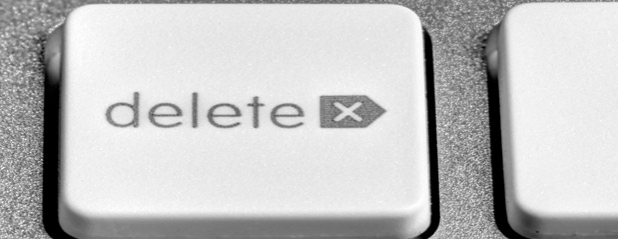Protecting future generations with iRights

Have you ever posted something online that you instantly regretted? Most of us have, whether it be a photo of an alcohol fuelled night out or a ranting twitter status about your rival football team. These undesirable pictures and statuses can blight job prospects and university offers. Even if you manage to delete the troublesome post from your page, it can still show up on search engines and other websites.
The problem is that the internet is now 25 years old and was not designed with young people in mind, who may not understand or consider the consequences of posting such material online. In an effort to combat this, internet campaign group iRights is calling for individuals under the age of 18 to be able to delete any content from their social media pages that may come back to haunt them later in life.
Mhairi Black, the youngest MP yet has experienced having her online indiscretions coming back to haunt her as an adult first hand. When in her teens, the now 20 year old politician sent a number of tweets about her love of alcohol and getting drunk. These tweets surfaced after she entered Parliament in May. Clearly, Mhairi has grown up a fair bit since then and so it is unfortunate that people are able to judge her on something that is now in her past.
iRights are hoping to rectify situations like the above, as well as making the internet an all round safer environment for children. According to their website, iRights is a civil society initiative that seeks to make the digital world a more transparent and empowering place for children and young people (under 18) by delivering a universal framework of digital rights, so that young people are able to access digital technologies creatively, knowledgeably and fearlessly. In simpler terms, the organisation is working to prevent young people from harming their career prospects through their online actions.
They aim to do this through the implementation of five simple rights:
The Right to Remove:
‘It must be right for under 18s to own content they have created, and to have an easy and clearly signposted way to retract, correct and dispute online data that refers to them…This must be easy and straightforward to do.’
The Right to Know:
‘It must be right that children and young people are only asked to hand over personal data when they have the capacity to understand they are doing so and what their decision means. It must also be right that terms and conditions aimed at young people are written so that typical minors can easily understand them.’
The Right to Safety and Support:
‘It must be right that children and young people receive an age-appropriate, comparable level of adult protection, care and guidance in the online space, as in the offline. And that all parties contribute to common safety and support frameworks easily accessible and understandable by young people.’
The Right to Informed and Conscious Choices:
‘It must be right that the commercial considerations used in designing software should be balanced against the needs and requirements of children and young people to engage and disengage during a developmentally sensitive period of their lives. It must also be right that safety software does not needlessly restrict access to the internet’s creative potential.’
The Right to Digital Literacy:
‘It must be right that children and young people learn how to be digital makers as well as intelligent consumers, to critically understand the structures and syntax of the digital world, and be confident in managing new social norms. To be a 21st century citizen, children and young people need digital capital.’
Although these rights will not be legally enforced, companies will be lobbied into making sure that their websites abide by them. A host of companies and charities, including Mozilla, Microsoft, the NSPCC and Barnados have already signed up to the campaign.
To find out more head to the iRights website.
